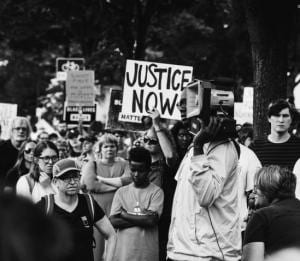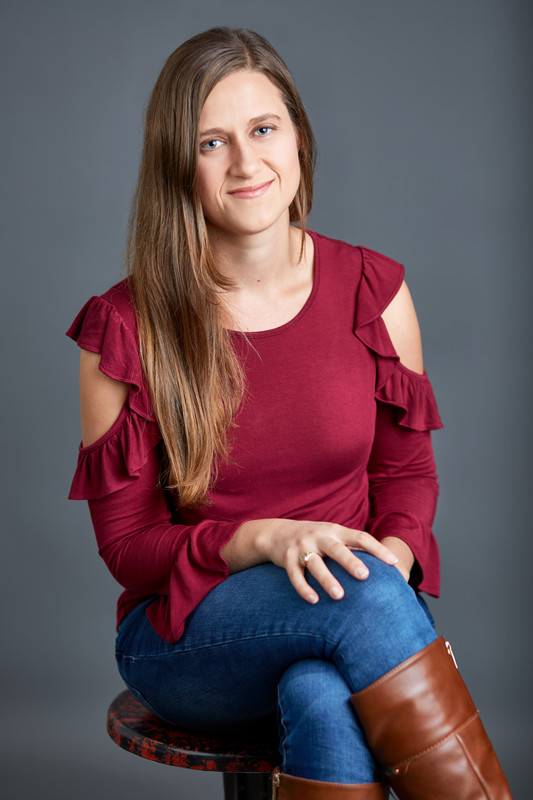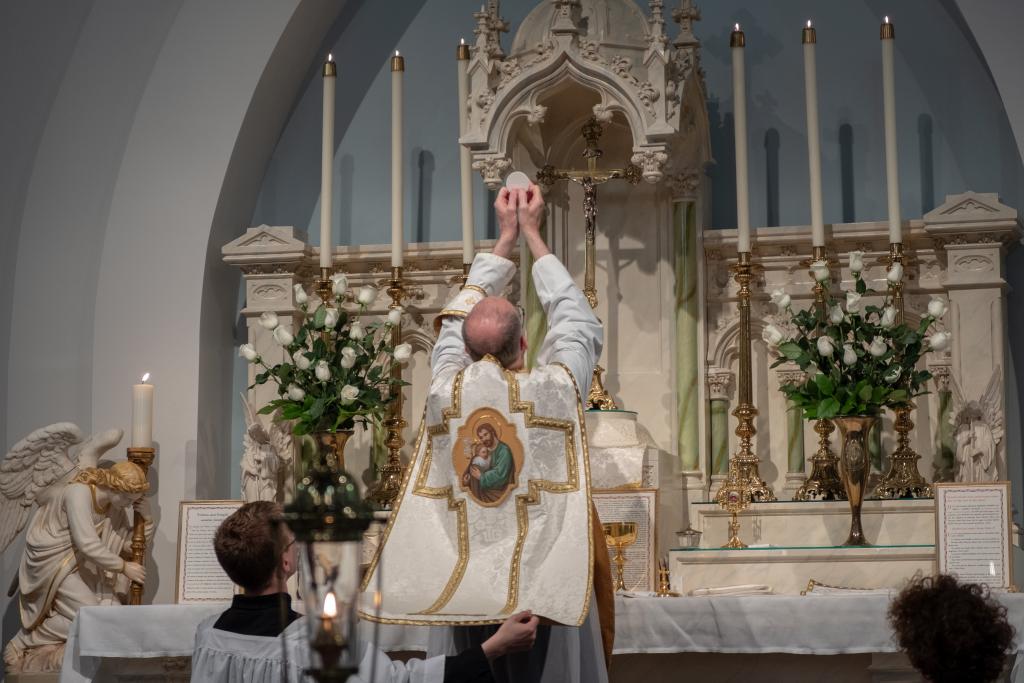
This week, video showing the slow, brutal death of George Floyd, was released. He was suffocated to death when Derek Chauvin, a Minneapolis police officer, knelt on his neck for five minutes. Three additional officers Thomas Lane, Tou Thao and J Alexander Kueng, stood by and watched. The officers have been fired, but so far no one has been arrested.
Earlier this month, video was released of the shooting of Ahmaud Arbery, who was ambushed and shot by two white men, one of whom was a former police officer. This took place in February, but no charges of any nature were filed until the video was released in May.
We’ve been here before. In fact, we’ve never been anywhere but here. Violence against black people at the hands of the state has been a reality for our country since it’s founding. It’s time for Catholics to treat this as a pro-life issue. If you’re angry over issues like abortion and euthanasia, you should also be angry over state violence, mass incarceration, and the death penalty.
Stop Blaming Victims
There is a tendency among white people to look for an explanation other than racism when confronted with these circumstances. In the case of Ahmaud Arbery, apologists have attempted to claim that he was trespassing or that he had a history of shoplifting. Neither of those things warrant being shot in cold blood. As we speak, protests in Minneapolis over the death of George Floyd have grown violent, causing people to wring their hands and wonder why they can’t just protest peacefully like Martin Luther King. Never mind that Colin Kaepernick’s peaceful protests around this issue made many white people so angry they boycotted the entire NFL. It’s time we stop telling people how to behave and start listening.
We also need to stop whataboutism when it comes to state sanctioned violence. When I wrote about this on Twitter, I was met with a lot of people who wanted to talk about black-on-white crime or black-on-black crime or crime against police officers. These are not examples of state sanctioned violence. They are not perpetrated on private citizens by those in power. Don’t pretend that you can’t distinguish between what is systemic and what isn’t.
Listen to Black Voices
If you’re white, you’ve grown up with bias. This isn’t a personal judgement against you; it’s a reality of our society. If you believe yourself to be colorblind, that in itself is bias. You can’t be colorblind if you’re living with racism. So it’s important to listen to the voices of people of color. Here are a few black Catholics and Christians that have helped me understand my own biases.
Obviously this is not an extensive list.
- Gloria Purvis is the host of Morning Glory on EWTN radio. She talks about her experience being black and Catholic in the United States and how theology can inform our understanding of racism.
- Ally Henny is a Christian writer, preacher, and educator who speaks extensively about the history of racism in American and particularly in Christianity. Her blog, The Armchair Commentary, is insightful, challenging, and not to be missed.
- M. Shawn Copeland is a theologian, anthropologist, and author. Check our her article on Black Theology and a legacy of oppression in America Magazine. Or better yet, check out one of her books.
- Sr. Jaime T. Phelps is a Dominican Sister, theologian and the author of Black and Catholic: The Challenge and Gift of Black Folk. She covers the history of black Catholics and why their experience is unique and transformational in the American Church.
- Martin Luther King, Jr. If Christians are going to continue using Dr. King’s legacy as a model for how people ought to behave, it’s time we really studied what he thought, aside from a few feel-good quotes. He was a revolutionary. Read his books, please. The great man deserves that.
Pro-life for the Whole Life
Catholics are called to a pro-life ideology that opposes all state-sanctioned death. We’re obligated to call for reform. The life of George Floyd was infinitely cherished by God. It’s time we did the same.












